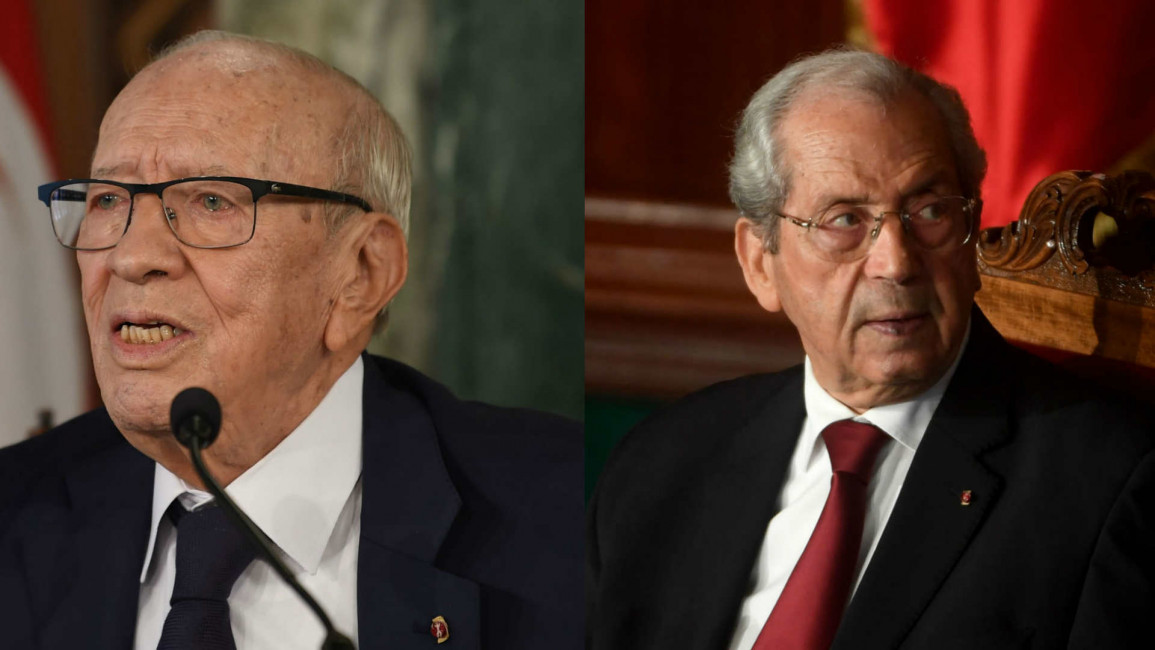World's oldest heads of state? Tunisia makes record books twice in one day
Late Tunisian President Beji Caid Essebsi, who passed away on Thursday at the age of 92, was the second oldest head of state after Britain's Queen Elizabeth II.
Parliamentary speaker Mohamed Ennaceur will be sworn in today as Tunisia's acting interim president and will become - at the age of 85 - the fifth oldest head of state in the world.
In the years since 2011, in which the country's longtime despot Zine El Abidine Ben Ali was ousted, both of Tunisia's democratic leaders will have topped the list of the world's oldest heads of state.
But they are not the only Arab leaders to grace the list.
As of today, the 90-year-old Emir of Kuwait Jaber Al-Ahmad Al-Sabah holds the position of second oldest head of state.
Ennacour will move into the fifth place after he is sworn in today at 3pm UK time. He now has 90 days to organise a presidential election under the North African country's constitution.
Lebanese President Michel Aoun holds the sixth position at 84-years-old, followed by 83-year-old Palestinian President Mahmoud Abbas.
Saudi Arabia's King Salman is the eighth oldest head of state, while Abdelaziz Bouteflika, the former president of Algeria, who resigned in April after months of mass protests, was 82 years old.
Similarly to Essebsi, rumours circulated about the deteriorating health of Bouteflika and led to calls for greater transparency.
Queen Elizabeth II holds the first spot at 93 years of age.
The governor-general of Belize, the president of Cameroon, and the governor-General of Saint Vincent
and the Grenadines also make the list of the top ten oldest heads of state.
The death of Essebsi ushers in a period of political transition in the North African nation, hailed as a rare Arab Spring success story.
In April, Essebsi said he did not plan to stand for re-election in polls due to be held in November this year in order to make way for someone younger.
Agencies contributed to this report.
Follow us on Twitter: @The_NewArab



